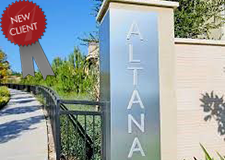 *Asked & Answered
*Asked & Answered
Asked – We are thinking about granting a variance to the Covenants of our Homeowner’s Association. The question is: would the Variance, if granted, apply to the next landowner (i.e., does the grant of a variance run with the land)?
Answered – A homeowners association’s (“HOA’s”) governing documents may permit the HOA to, under limited and extraordinary circumstances, issue a variance from compliance with one or more of the HOA’s architectural standards. Because the decision to grant a variance has been held to be analogous to the issuance of a zoning variance by an administrative agency, HOAs are limited to granting variances in unique and extraordinary circumstances where substantial evidence would justify the desired variance. (See e.g., Cohen v. Kite Hill Community Assn. (1983) 142 Cal.App.3d 642, 652, quoting Topanga Assn. For a Scenic Community v. County of Los Angeles (1974) 11 Cal.3d 506, 517-18.)
For example, and with respect to zoning variances, said variances are granted “only when, because of special circumstances applicable to the property, including size, shape, topography, location or surroundings, the strict application of the zoning ordinance deprives such property of privileges enjoyed by other property in the vicinity and under identical zoning classification.” (Cal. Govt. Code § 65906.) Thus, it is the unique nature of the land and its surroundings which would justify the issuance of a zoning variance, not necessarily the individual desires of the property owner.
Cases which have discussed variances in the context of a HOA have not addressed the issue of whether architectural variances are perpetual in nature (i.e., whether the grant of a variance runs with the land and binds future property owners). As such, and given the Court’s treatment of architectural variances as being analogous to the issuance of a zoning variance, it is important to examine the scope of a zoning variance to determine whether said variance applies individually to the owner of the property when the variance is issued, or if it applies to the property upon which the variance is given and therefore runs with the land.
In Cohn v. County Bd. Of Supervisors, the California Court of Appeal held that a variance from the general plan of zoning for use of property was “not personal to the owner at the time of the grant, but [was] available to any subsequent owner….” ((1955) 135 Cal.App.2d 180, 184, quoting 62 C.J.S. § 547 (now 66 C.J.S. § 472.) In other words, the variance runs with the land and binds future owners. (Id.) Accordingly, given the similar treatment of architectural variances to zoning variances, it is reasonable to conclude that such architectural variances are not personal to the owner at the time of issuance by the HOA, but runs with the land and binds future owners of the property.
In light of the binding nature of architectural variances, there may be circumstances where it would be prudent for the HOA to document such variance through a recorded agreement or covenant. This is particularly important where the HOA’s approval is conditioned upon continued action by the property owners (e.g., maintenance and indemnification). Moreover, although the property owner would have an affirmative obligation to disclose the existence of any variance granted and/or any obligations imposed by the Association in connection therewith (see generally, Kovich v. Paseo Del Mar Homeowners’ Assn. (1996) 41 Cal.App.4th 863), a recorded agreement is the most dependable way of ensuring that future owners are on notice of the existence of the agreement and they assume upon purchase.
 |
Board members must be cautious when granting variances to architectural standards, doing so only where extraordinary circumstances warrant. When a variance is granted, the Board should ensure that any conditions imposed on such approval is clearly stated in the Board’s decision, and, in some circumstances, documented in a recorded agreement. Accordingly, the foregoing highlight’s the importance of involving the HOA’s legal counsel to guide the Board in determining whether a variance should be documented by way of a recorded agreement. |
-Blog post authored by TLG Attorney, Matthew T. Plaxton, Esq.
 It’s our privilege to welcome East Garrison Community Association to Tinnelly Law Group’s growing family of HOA clients.
It’s our privilege to welcome East Garrison Community Association to Tinnelly Law Group’s growing family of HOA clients. HOA Lawyer Blog
HOA Lawyer Blog


 It’s our privilege to welcome Costa Viva Homeowners Association to Tinnelly Law Group’s growing family of HOA clients.
It’s our privilege to welcome Costa Viva Homeowners Association to Tinnelly Law Group’s growing family of HOA clients. *Asked & Answered
*Asked & Answered It’s our privilege to welcome Briarwood in Wildomar Community Association to Tinnelly Law Group’s growing family of HOA clients.
It’s our privilege to welcome Briarwood in Wildomar Community Association to Tinnelly Law Group’s growing family of HOA clients. It’s our privilege to welcome Portarosa Community Association to Tinnelly Law Group’s growing family of HOA clients.
It’s our privilege to welcome Portarosa Community Association to Tinnelly Law Group’s growing family of HOA clients. In
In  It’s our privilege to welcome Newport Landing Homeowners Association, Inc. to Tinnelly Law Group’s growing family of HOA clients.
It’s our privilege to welcome Newport Landing Homeowners Association, Inc. to Tinnelly Law Group’s growing family of HOA clients. It’s our privilege to welcome Chambray Neighborhood Corporation to Tinnelly Law Group’s growing family of HOA clients.
It’s our privilege to welcome Chambray Neighborhood Corporation to Tinnelly Law Group’s growing family of HOA clients. *Unpublished Opinion
*Unpublished Opinion We are proud to announce that Altana Homeowners Association has selected Tinnelly Law Group as their association’s legal counsel.
We are proud to announce that Altana Homeowners Association has selected Tinnelly Law Group as their association’s legal counsel.